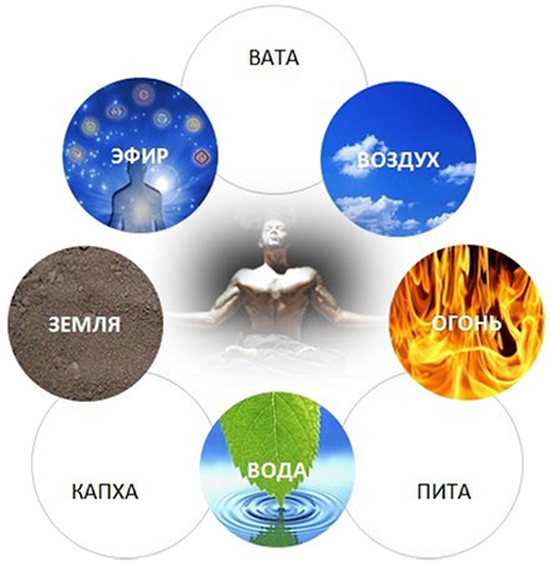Balance – the basic concept of Ayurveda

Ayurvedic definition of health – “balance”. Balanced action, balanced thinking, balanced physiological activity – from circulation and digestion and to psychological and spiritual balance.
Everything that exists in the universe is expressed through five elements: Space, Air, Fire, Water and Earth. Vrezultate development and interaction, they form three doshas, which govern the body: Vata Dosha, Pitta and Kapha Dosha Dosha.
Wadding consists mainly of Air and Space, showing the principle of motion in the body. Pete, consisting mainly of Fire, is the principle of metabolism and intelligence. Kafa, consisting of water and the ground, is the principle of the body structure. The specific combination of the three doshas man called Prakriti – the constitution of the human body.
Health means that all three doshas must function in equilibrium (balanced). The imbalance of doshas leads to disease. Unbalanced state of the various physiological systems, such as digestive, nervous, endocrine, sensory, as a result of not giving a complete assimilation of all that is made for food.
The product of this unusual physiology of activity referred to Amoy. Ama – is the toxins and waste, which block all the channels in the body and weaken the immune system.
To achieve a balance of physiological and mental activity, as well as cleansing the body of toxins Ayurveda Panchakarma uses – “Five cleaning action”. In addition to the Panchakarma Ayurveda prescribes herbal therapy, which restores the body and mind so that the balanced functioning in everyday life.
According to Ayurveda, Panchakarma, not only, but also yoga, meditation, astrology and Vedic procedures revitalizing natural principles play an equally important role in health, as well as proper diagnosis and timely treatment of disease.
Recommended Posts

Panchakarma Treatments | Nasya
September 16, 2024

IBS AS PSYCHOSOMATIC DISORDER
June 25, 2024

